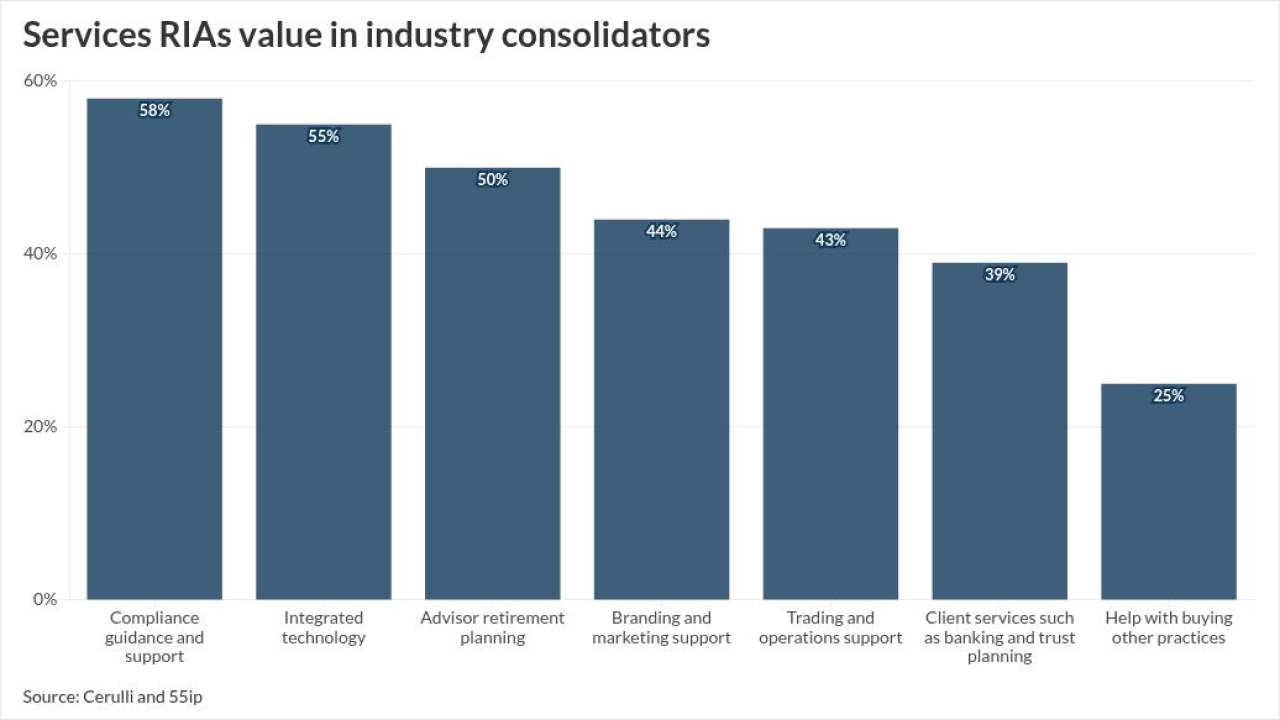Looking to attract and retain top advisors this year? Expect senior-level executives to demand equity and career growth, says Kathy Freeman.
When we started the survey five years ago, executives were more focused on the health of the company, says Freeman, president and CEO of her eponymous executive search firm. Now its all about their own careers.
Freeman's firm surveyed 225 senior-level executives at financial advisory, service and asset management firms around the country. Slightly more than 50% identified career growth as a high priority and a key reason for moving.
Executives today dont want a higher position so much as a broader position, Freeman says. They want to be stretched and challenged, and they want an opportunity to grow. They want to be able to help build a business, grow a company and develop new talent.
EQUITY FOCUS
Equity has also become an increasingly important driver of career satisfaction, the survey found. In fact, nearly two-thirds of executives surveyed said they would consider taking less cash compensation to gain an equity stake in a new firm.
Truly talented people will opt for wealth creation over cash compensation, the report found. Whether its a profit-sharing plan or an equity stake, the offer of ownership will resonate with executives.
And bosses beware: Nearly 60% of the executives surveyed -- the second highest share in the surveys five-year history -- said they would consider a position outside their firm this year.
'VERY PARTICULAR'
As a result of the industrys continuing talent shortage, these executives are in the driver's seat, according to the report -- are being very particular about their next move. In fact, last year 43% said they were open to a new opportunity but didnt move because the right position never surfaced.
Firms seeking new talent will have to be more aggressive, Freeman contends. Firms used to tell me Were thinking of expanding and hiring another divisional executive; see if theres anybody out there." But now, she says, "They have to be all in ... or dont bother.
To appeal to top executives with career goals of their own, firms need to articulate a compelling story, she adds. Successful executives will only act on something truly special, she says. Firms need to be very specific about how the executive will make a difference in their organization.
A highly effective retention tool for large and small firms, Freeman says, is an internal audit to see if top advisors' vision for career growth matches the companys plans for them. If theres misalignment, its a perfect opportunity to work things out, she says.
Firms can create a roadmap with a career path, succession opportunities, leadership development and more input on important company decisions.
CULTURE MATTERS
Corporate culture is also critical for firms looking to attract and retain talent, says Freeman, who says her survey showed increasing correlation between a firms culture and advisor job satisfaction. People are looking for a more collaborative environment, she notes. The tech industry has incubated the benefit of working in a team setting, and the financial services industry has really glommed on to that.
In big companies, office politics is a major complaint, Freeman says. A big source of dissatisfaction is being in an environment where people get ahead because they are more effective at politics than [at] executing on their roles.
Financial firms also need to face up to the fact they need to attract more younger people to the industry, Freeman says. Right now theyre in denial ... Almost 80% dont think it will be difficult to attract younger people into the industry," she says. "But the talent shortage is a huge problem.
Firms should tout the benefits of financial advice and investments for society, demonstrate that they are responsible corporate citizens and create more internships for college students, Freeman says. The more young people become familiar with what this business is all about, she says, the more positively they will respond.
Read More:





